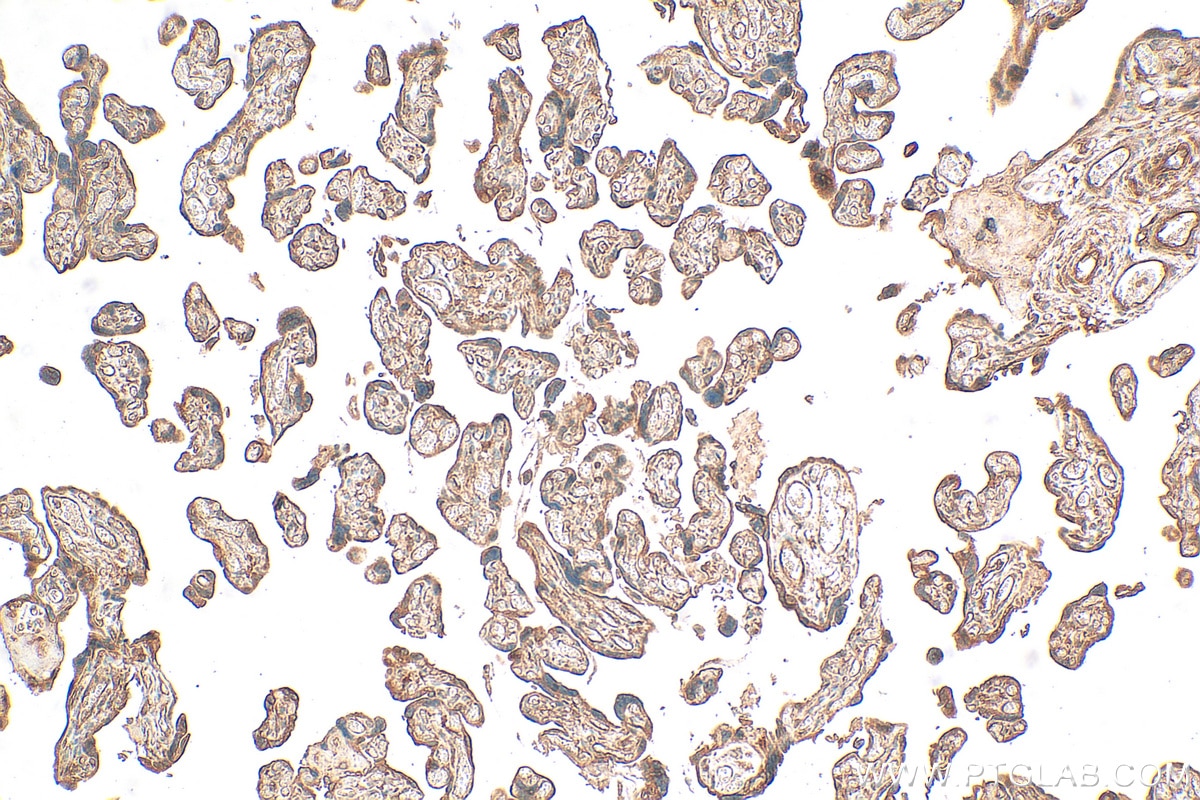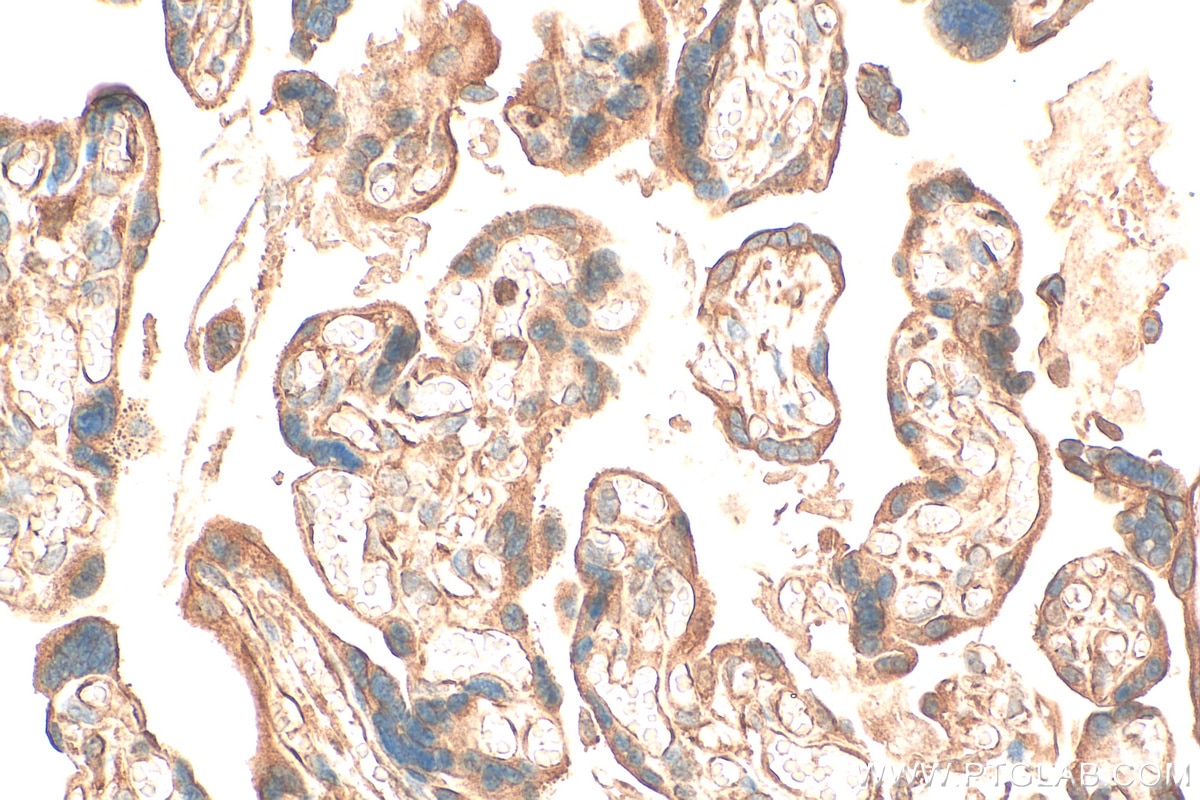oncomodulin Polyklonaler Antikörper
oncomodulin Polyklonal Antikörper für IHC, ELISA
Wirt / Isotyp
Kaninchen / IgG
Getestete Reaktivität
human
Anwendung
IHC, ELISA
Konjugation
Unkonjugiert
Kat-Nr. : 21650-1-AP
Synonyme
Geprüfte Anwendungen
| Erfolgreiche Detektion in IHC | humanes Plazenta-Gewebe Hinweis: Antigendemaskierung mit TE-Puffer pH 9,0 empfohlen. (*) Wahlweise kann die Antigendemaskierung auch mit Citratpuffer pH 6,0 erfolgen. |
Empfohlene Verdünnung
| Anwendung | Verdünnung |
|---|---|
| Immunhistochemie (IHC) | IHC : 1:50-1:500 |
| It is recommended that this reagent should be titrated in each testing system to obtain optimal results. | |
| Sample-dependent, check data in validation data gallery | |
Produktinformation
21650-1-AP bindet in IHC, ELISA oncomodulin und zeigt Reaktivität mit human
| Getestete Reaktivität | human |
| Wirt / Isotyp | Kaninchen / IgG |
| Klonalität | Polyklonal |
| Typ | Antikörper |
| Immunogen | oncomodulin fusion protein Ag16358 |
| Vollständiger Name | oncomodulin |
| Berechnetes Molekulargewicht | 109 aa, 12 kDa |
| GenBank-Zugangsnummer | BC113706 |
| Gene symbol | Oncomodulin |
| Gene ID (NCBI) | 654231 |
| Konjugation | Unkonjugiert |
| Form | Liquid |
| Reinigungsmethode | Antigen-Affinitätsreinigung |
| Lagerungspuffer | PBS with 0.02% sodium azide and 50% glycerol |
| Lagerungsbedingungen | Bei -20°C lagern. Nach dem Versand ein Jahr lang stabil Aliquotieren ist bei -20oC Lagerung nicht notwendig. 20ul Größen enthalten 0,1% BSA. |
Hintergrundinformationen
Oncomodulin (OCM) is a small EF-hand Ca2+-binding protein (CaBP) of approximately 12 kDa belonging to the parvalbumin family. Oncomodulin (OCM) consists of two active Ca2+-specific domains of the EF-hand type ("helix-loop-helix" motif), covered by an EF-hand domain with inactive EF-hand loop, which contains a highly conservative cysteine with unknown function.
Protokolle
| PRODUKTSPEZIFISCHE PROTOKOLLE | |
|---|---|
| IHC protocol for oncomodulin antibody 21650-1-AP | Protokoll herunterladenl |
| STANDARD-PROTOKOLLE | |
|---|---|
| Klicken Sie hier, um unsere Standardprotokolle anzuzeigen |



